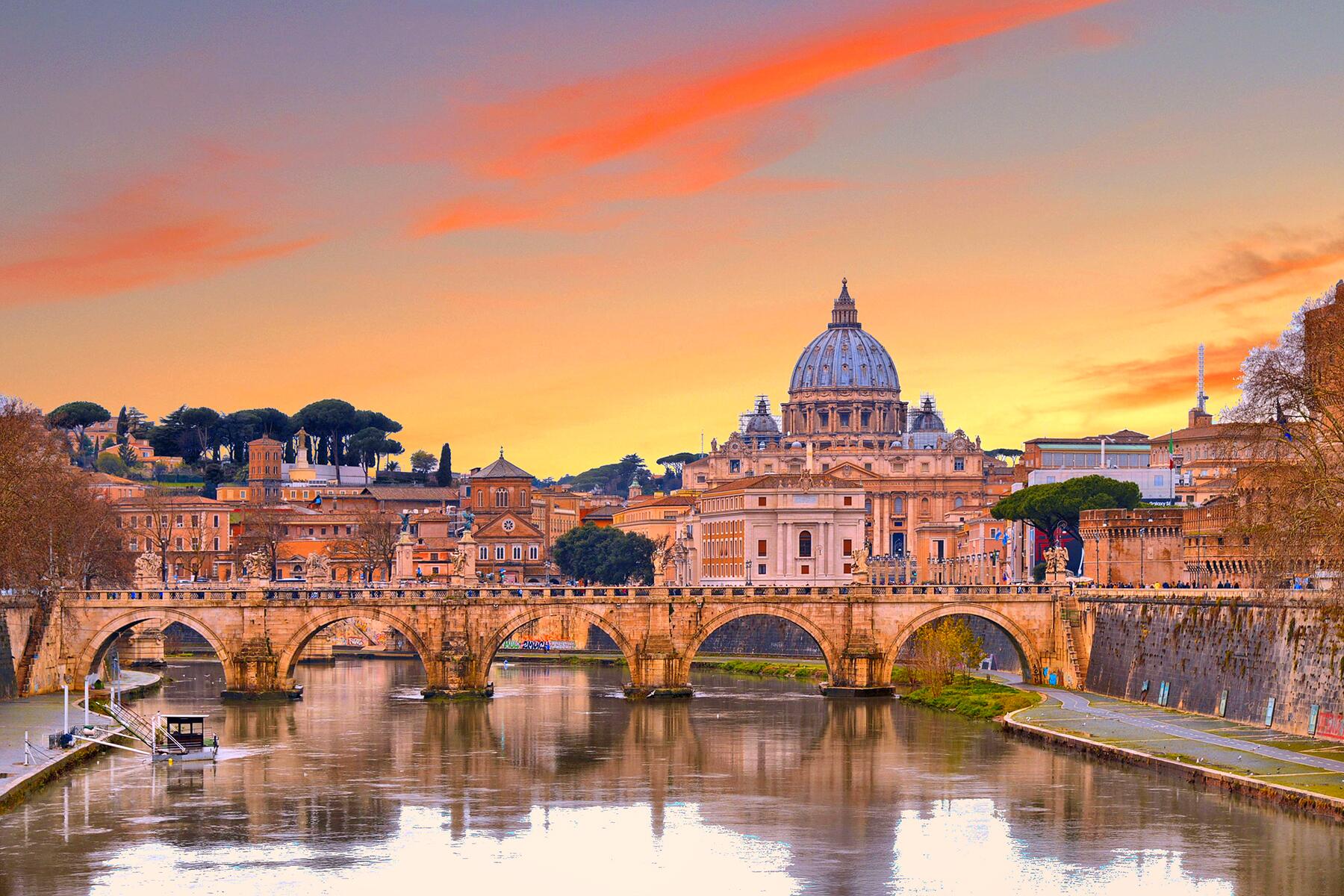Making a bit of an effort can go a long way.
As one of the romance languages based on Latin, Italian is an especially beautiful and melodious language. On my first trip to Italy, I remember thinking that the conversations around me sounded like little operas being performed on the streets—I was totally enchanted by it.
When I decided to move to Rome, I was determined to learn Italian so I could converse with the locals. Now that I live there and have traveled around the country, I can distinguish between many of the regional accents, but the Roman accent is still my favorite, even if modern Italian most closely resembles the Tuscan dialect.
When friends and family visit me in Rome, I’m happy to translate, but in many cases, it’s not really necessary. Rome is one of Italy’s most visited cities, so Romans—especially those who work in the hospitality industry—are accustomed to interacting with English-speaking visitors. No one expects you as a tourist to speak Italian fluently, but most Romans will appreciate it if you make an effort to use basic words and phrases. You might even find that you get better service in restaurants or make new friends.
Keep in mind that in Italian, every letter in a word is pronounced, including the final e, even if it’s written without an accent mark. Here are a few keywords and phrases to know.
Basic Need-to-Knows
The most basic greetings to learn are buongiorno (good morning/afternoon) and “buonasera” (good evening). When entering a shop, restaurant, bar, hotel, or other public place, it’s polite to say “buongiorno” or “buonasera” depending on the time of day. You’ll also hear Romans say “salve” when entering shops, as this is a neutral greeting—neither formal nor informal. When answering the phone, say “pronto” instead.
Recommended Fodor’s Video
When meeting someone for the first time, shake their hand and say “piacere” (nice to meet you). When greeting friends and family, Italians typically do an air kiss on both cheeks and use the informal “ciao,” which also functions as goodbye. “Arrivederci” is the more formal way to say goodbye.
If you want to ask an Italian “How are you?” say “come sta?” (formal), “come stai?” (informal), or “come va?” (how’s it going?). If they ask you, respond with “sto bene” (I’m well) or “va bene” (it’s going well or okay).
When asking for something, it’s polite to say “per favore” (please). When asking for the check, for example, the phrase to learn is “il conto, per favore.” When buying tickets at a museum, ask for “un biglietto per favore” (one ticket please).
“Grazie” means thank you, and yes, the e at the end is pronounced. To say thanks a lot, you can say “grazie mille,” which literally means “a thousand thanks.” Your interlocutor will likely respond with “prego,” which means “you’re welcome,” and is also used as a polite way to say, “after you.”
Want to get someone’s attention or apologize for bumping into someone? “Scusi” means excuse me and you’ll hear it a lot in Rome. When trying to pass through a crowd, especially on the bus or metro, you’ll hear Italians say “permesso” instead.
Some Useful Phrases
At some point, you’ll probably have to ask for directions, even if it’s just to the bathroom. “Dove” means where and “dov’è” means where is, so if you want to ask how to find the bathroom, the phrase to know is “dov’è il bagno?” If they respond, “a sinistra,” that means on the left. “A destra” means on the right. “In fondo” is in the back.
To ask about the price of an item, simply say, “Quanto costa?”
When ordering at a restaurant, “vorrei” means I would like, so you might say, “vorrei la carbonara, per favore.”
“Posso avere” means may I have?
If worse comes to worst, you can always ask, “Parla inglese?” (Do you speak English?) or say “non capisco” (I don’t understand). If Romans hear you struggling, they’ll probably switch to English anyway. But it’s always important to try!
You need the pronunciation. Italian pronunciation is not obvious.






This took me down memory lane of the last time that I traveled throughout Italy a few months before covid. God bless all the nice Italians that encouraged me to keep speaking Italian even though I wasn't fluent and the ones that gave me big smiles when I ordered items or asked questions.